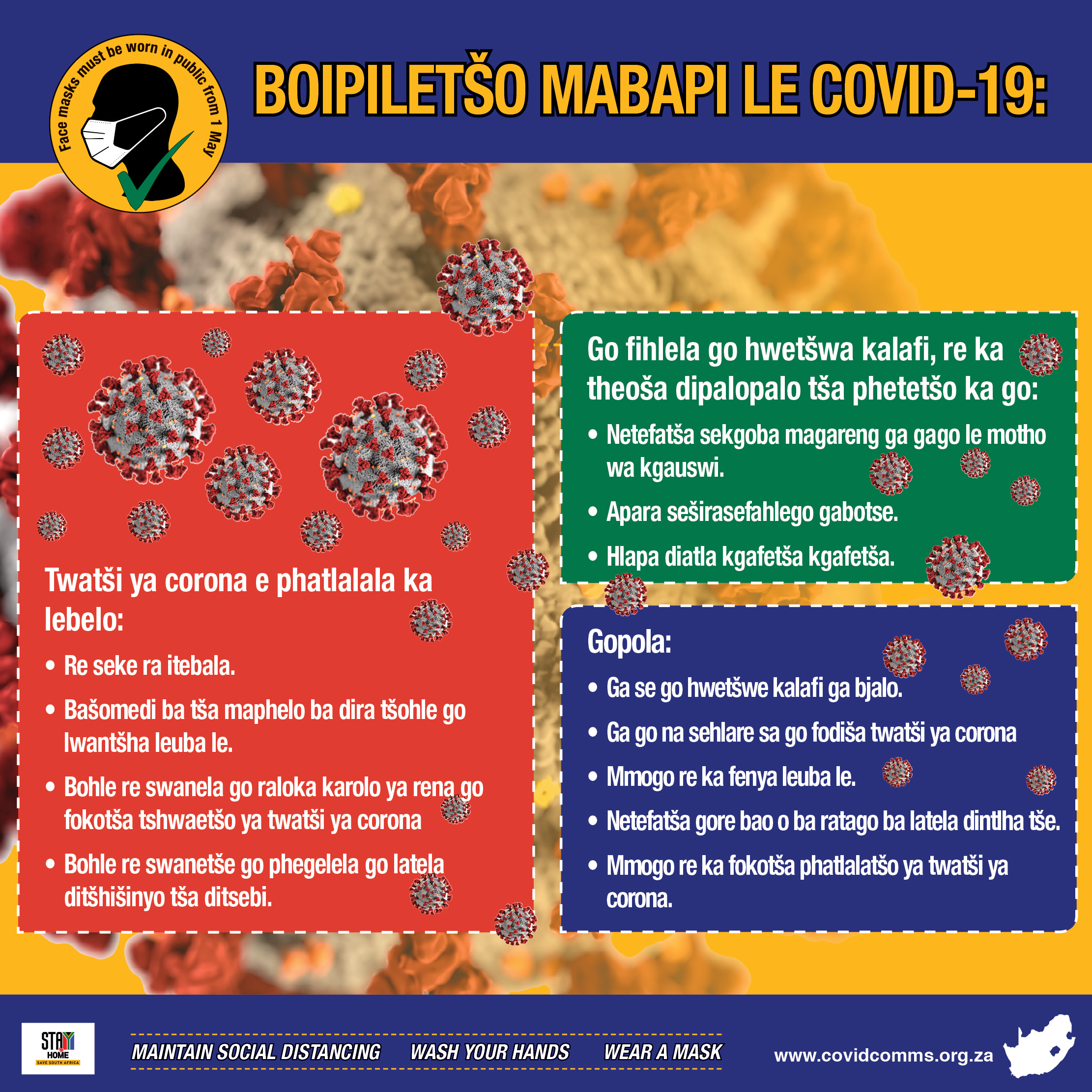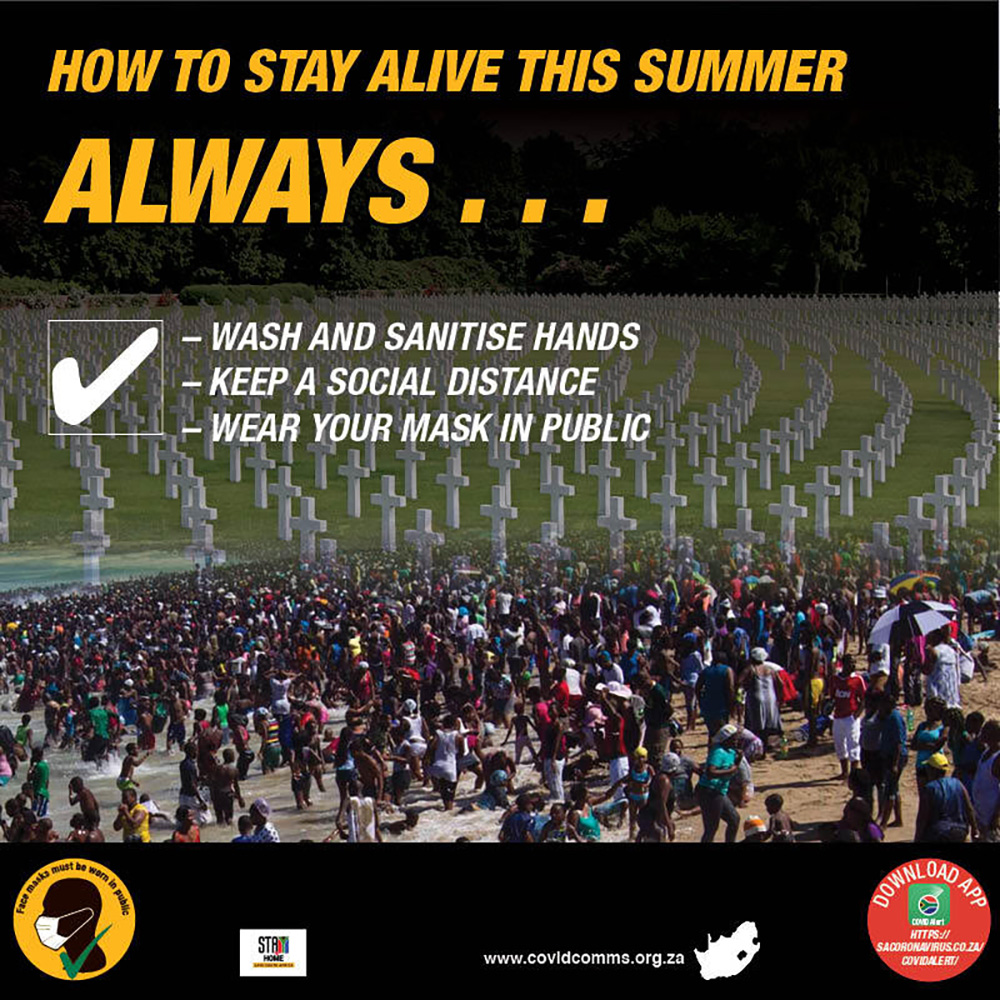CORONAVIRUS OP-ED
Covid Comms, its volunteers and its achievements a rare good news Covid-19 story

The spirit of volunteerism and commitment, the strong ‘social enterprise’ component of its work, and its consultative approach to working in the Covid-19 space is the greatest takeaway from the first two years of Covid Comms and its success.
It started with a tweet.
As I watched President Cyril Ramaphosa announce the national state of disaster on 19 March 2020 in response to the threat of the Covid-19 pandemic, two thoughts went through my mind:
- Are we going to make it through this?
- What can we do to help?
The first question, in part, has been answered. We have made it through this, but at a massive cost — in terms of lives lost, livelihoods lost, and millions of rands stolen from the public purse.
The second question is one we at Covid Comms continue to grapple with. Two years after Ramaphosa’s announcement, it would be foolhardy to think that anyone has done a perfect job in helping out with communicating the threats posed by the pandemic.
But top of my mind, on the evening of 19 March 2020, was the accessibility of government messaging on this crucial public health issue. The president came across as being in control, but his messaging was technical — and only in English.
It prompted a couple of tweets:
Two people were tagged in the first tweet — then presidential spokesperson Khusela Diko, and then Health Minister Zweli Mkhize. Ironically, both were later to be chased out of government because of corruption allegations related to the Covid-19 pandemic. But not before Diko set up a call with then Minister in the Presidency Jackson Mthembu, who welcomed the idea of a network of communications volunteers — without any hesitation.
Core volunteers
And so Covid Comms was born. Within the first week, we had more than 170 volunteers who were organised into workstreams.
It soon became clear that, as a myriad South Africans had different expectations of their government’s role in dealing with the pandemic, so the myriad Covid Comms volunteers had different expectations of our volunteer network.
Many left the network quickly, realising that the effort was going to focus on producing rather than criticising, and we were left with a relatively stable core of 20 to 25 people. Their tasks ranged from the identification of issues to the development of concepts, the production of content, the translation of these products — into all 11 of South Africa’s official languages, where possible — and the distribution through rapidly growing social media networks, a rough and ready website, and WhatsApp groups.
Two years down the line, it’s worth looking at where we’ve ended up.
From my perspective, the establishment and growth of Covid Comms is one of the few “good news” stories of the pandemic. Together, our collective has been able to produce more than 170 infographics, 70 videos — whether live-action or animations — and 70 sound files. Our products have been moved across multiple platforms, whether as public service announcements on SABC, DStv and 702, as social media clips or through our growing WhatsApp networks.
Our work has been accepted and shared by civil society groups, trade unions, organised business and government. We have been commissioned to produce Covid-19-related content by corporates such as Discovery, non-profit organisations such as aware.org, by civil society groups such as Section 27 and the C19 People’s Coalition, by labour groups such as Fedusa, and by government departments such as the Department of Public Service and Administration.
Accessible health information
We’ve done so by staying true to our founding principles, our raison d’être: to produce compelling public health information products, in plain language, and in as many South African languages as possible. We have also ensured that our products are easy to “move” during a pandemic: they are social and digital media-friendly, they are compact and compressed, and they tell the story in as short a time as possible.
Alongside this, we’ve also stayed true to our mission as activists, positioned squarely in the broad civil society movement for social justice. We have specifically focused on the rights (and responsibilities) of those who are information-poor, as we believe they are the most in need of accurate, easy-to-understand information that can save lives — thus the focus on using indigenous languages and plain language.
We have highlighted related issues such as mental health, grief and personal safety during the very traumatic time of lockdown. We have produced tailor-made material for the LGBTQI+ community, which has experienced uniquely and particularly painful times during lockdown, also when seeking health care.
At the same time, we have prioritised what we call our “social enterprise” role: we have gone out of our way to provide work — and income — to young black creatives, and women in particular, who suffered greatly during the economic crunch that came with lockdown. As a result, we’ve been able to provide an income (albeit small) to about 100 filmmakers, graphic designers, actors and voice artists — a contribution we are particularly proud of.
We built on this approach with our second area of work, from around September 2021, where we moved beyond communication to contact. We’ve expanded our work to include more than 100 vaccine awareness workshops (to date) run by young community volunteers. Working in partnership with the dynamic team at Youth Lab, we’ve provided a toolkit and guidance to these new vaccine ambassadors — and at the same time, provided them with much-needed stipends to facilitate their work.
It may sound too good to be true, but it isn’t.
Doing more with very little
One of the most impressive aspects of Covid Comms’s work is how much we’ve been able to do with very little. It’s really important to recognise that the core Covid Comms team effectively worked without pay for the first 14 months of its existence. They worked as volunteers who stepped up to help out, with their contribution rather than their reward being top of mind.
Even now, with close to R10-million in Solidarity Fund grants under our belt — for which we are extremely grateful — we still pay way below market rates, and yet are never short of people wanting to help out in producing high-quality content at a fraction of what commercial agencies would charge (never mind what the sharks at Digital Vibes were billing government during the early days of the pandemic).
It is this spirit of volunteerism and commitment, the strong “social enterprise” component of our work, and our consultative approach to working in the Covid-19 space, that is the greatest takeaway from the first two years of Covid Comms. It’s an approach we’ve nurtured and still hold dear.
It’s a lesson in how society can and should respond when faced with a human tragedy on the scale of Covid-19.
As communicators, brought together by the threat of large-scale death and destruction, we will be reflecting on this, and the work of the many other organisations and individuals involved in Covid-19 communication, at a national workshop convened by Covid Comms on Wednesday, 30 March 2022.
Honest reflection
Because of our commitment to intentional learning and intentional relationships, we’ve taken the decision to invite all the major communicators — government, labour, business and civil society — to take part in some honest reflection on what worked, what didn’t, and what we should do in the future.
It’s a workshop, not a talkshop, and we’re hoping to emerge with a common understanding of where we did well, where we failed, and what building blocks are available to trigger behavioural change where it’s needed in the future. There can be no doubt that some excellent work was done, but there were also horror stories.
We’ll be putting our heads together to define what makes best practice when it comes to public health communication and engagement — and, hopefully, develop a template or two for behavioural change challenges that existed before Covid-19, but which have been aggravated by the social, political and economic devastation that the pandemic brought with it. DM/MC
Chris Vick is chairperson of Covid Comms.
[hearken id=”daily-maverick/9303″]
"Information pertaining to Covid-19, vaccines, how to control the spread of the virus and potential treatments is ever-changing. Under the South African Disaster Management Act Regulation 11(5)(c) it is prohibited to publish information through any medium with the intention to deceive people on government measures to address COVID-19. We are therefore disabling the comment section on this article in order to protect both the commenting member and ourselves from potential liability. Should you have additional information that you think we should know, please email [email protected]"










 Become an Insider
Become an Insider